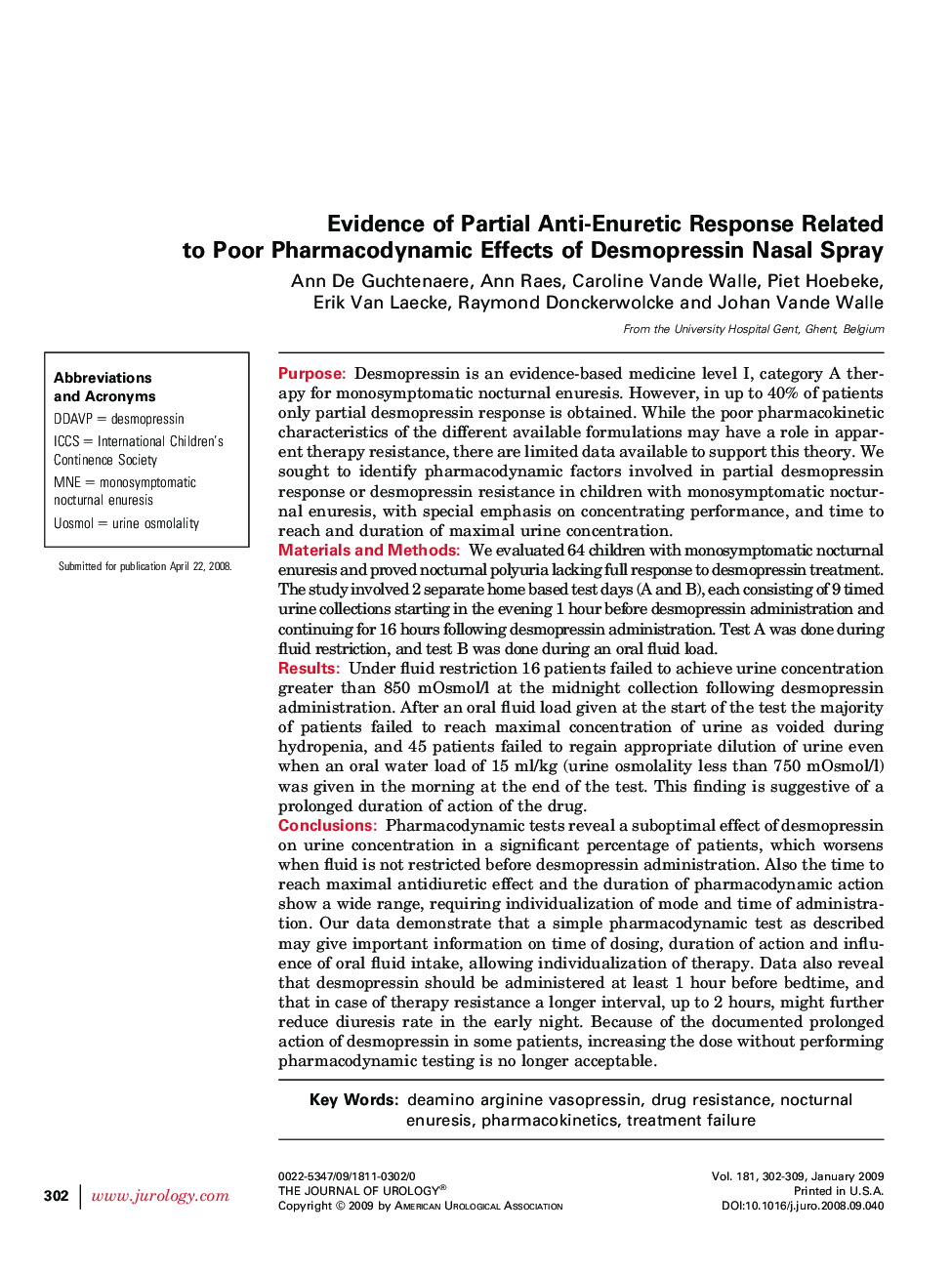| Article ID | Journal | Published Year | Pages | File Type |
|---|---|---|---|---|
| 3872078 | The Journal of Urology | 2009 | 8 Pages |
Abstract
Pharmacodynamic tests reveal a suboptimal effect of desmopressin on urine concentration in a significant percentage of patients, which worsens when fluid is not restricted before desmopressin administration. Also the time to reach maximal antidiuretic effect and the duration of pharmacodynamic action show a wide range, requiring individualization of mode and time of administration. Our data demonstrate that a simple pharmacodynamic test as described may give important information on time of dosing, duration of action and influence of oral fluid intake, allowing individualization of therapy. Data also reveal that desmopressin should be administered at least 1 hour before bedtime, and that in case of therapy resistance a longer interval, up to 2 hours, might further reduce diuresis rate in the early night. Because of the documented prolonged action of desmopressin in some patients, increasing the dose without performing pharmacodynamic testing is no longer acceptable.
Keywords
Related Topics
Health Sciences
Medicine and Dentistry
Nephrology
Authors
Ann De Guchtenaere, Ann Raes, Caroline Vande Walle, Piet Hoebeke, Erik Van Laecke, Raymond Donckerwolcke, Johan Vande Walle,
